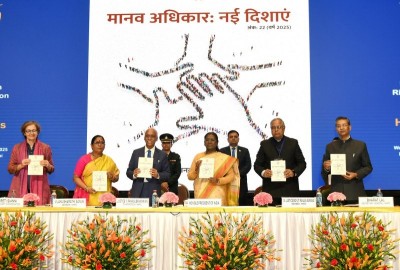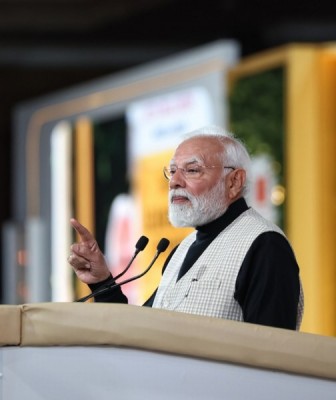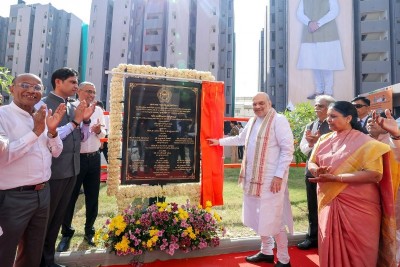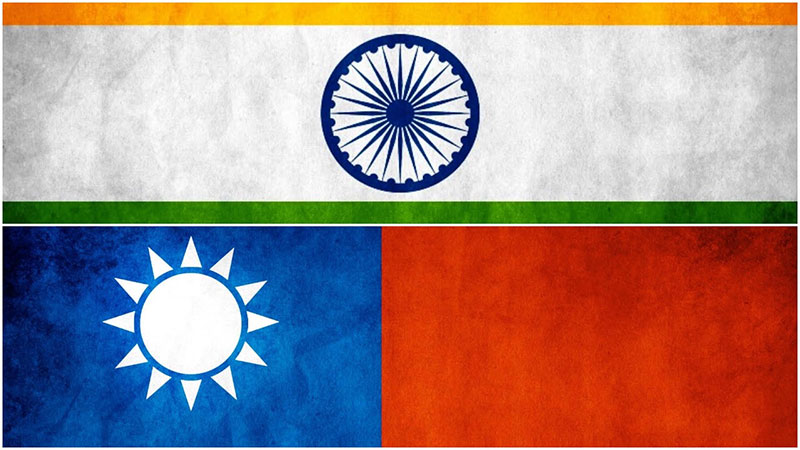 India-Taiwan
India-Taiwan
India-Taiwan relations are not hostage to India-China equations: Experts at journalists' conclave
New Delhi: India-Taiwan relations are age-old and are not just hostage to India-China equations, according to experts and journalists participating at a media conclave on the two nations here.
Experts said the ties between India and Taiwan are based on mutual respect for democracy and free societies.
They were speaking at a conclave on Oct 1 organised by the Usanas Foundation, in association with the Delhi Journalist Association, VAT Foundation, and Ministry of Foreign Affairs, Taiwan. It is India's first India-Taiwan journalists' conclave.
The goal of the seminar was to facilitate interaction between the journalists of both nations to consolidate bilateral relationships and discover the prospect of cooperation between the media and civil society.
The conclave was attended by prominent journalists from both countries and the welcome remarks were delivered by Baushuan Ger, the Chief Taiwanese representative to India, who brought to spotlight the rising bilateral relations between the two countries.
Senior BJP leader and its former general secretary Ram Madhav in his opening remarks highlighted India-Taiwan interaction in the fields of economy, science & technology, people-to-people connect, and education.
The journalist community must educate the world and uphold the noble ethos of the free world, especially in the midst of rising authoritative ideas, he said.
India believes in its civilizational values of ‘Vasudhaiva Kutumbakam’ and will keep on engaging with a like-minded nation like Taiwan, Madhav said.
Abhinav Pandya, founder of Usanas Foundation, iterated that India-Taiwan relations are age-old and are not just hostage to India-China equations.
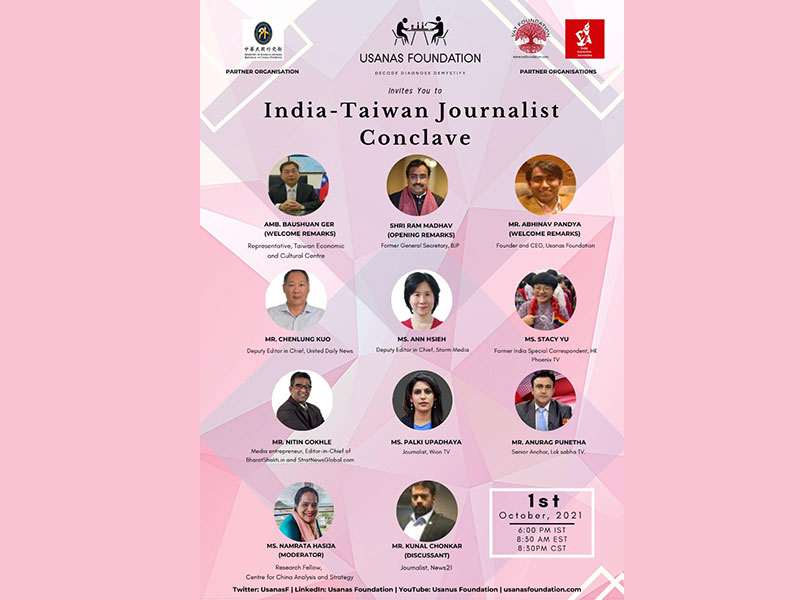
"India-Taiwan relationship is based on democracy, free-societies, multiculturalism, and liberty,’ he said. "There is a rise of expansionist forces in the Indo-Pacific region, therefore there is a need for such bilateral interactions which will also pave the way for broader interactions within other sections of society," he added.
"Therefore, there is an obvious opportunity for both the countries to increase cooperation among themselves. There are some areas that both countries should definitely cooperate in," he said.
The first area of possible cooperation is language training. “Taiwan could assist in setting up language centers in India that would teach Mandarin, especially since Chinese institutions like Confucius Institutes have been discovered to be propaganda centers,” he said.
With the rise of social media, it has become easier for news to reach Indian citizens but the India Media is integral for interpreting news for the Indian audience, and that’s why they will continue to be relevant.
Senior Lok Sabha TV anchor Anurag Punetha highlighted that Taiwan is a very vibrant country but despite that most of the Indian media continues to focus on China. This has led to some amount of misinformation and a lot of people in India, especially in rural areas, are not aware of Taiwan’s existence, he said.
Journalists can break the barriers in terms of understanding the culture, problems and even disseminate the misconceptions. Therefore, there should be more regular interaction between Indian and Taiwanese journalists freely.
Higher education is also a possible sector of cooperation and experts from both nations must also appear more frequently on the other nations' media and make their presence felt, he said.
Chenlung Kuo, Deputy Editor-in-Chief, United Daily News, stated that while Taiwan is not perfect its tireless struggles bore fruit and now not only the country has a strong civil society, gender equality, and strong democratic institutions, but over the last few years Taiwan has also developed a separate identity, different from Mainland China.
“With the continued deterioration between the relationship between the US and China, Taiwan is anxious about being trapped between both the nations in the future,” he said.
Former India correspondent of Hong Kong's Phoenix TV Stacy Yu highlighted that she has lived in India for a long time and that the Taiwanese are generally very curious about India.
"Many overlapping spheres of interest could facilitate further cultural exchanges between the two countries in the future. Presently there is a lack of correspondence between journalists in India and Taiwan and that the media must strive to share content," she said.
“The media can be civil ambassadors between India and Taiwan through soft engagements,” she added.
Deputy Editor-in-Chief of Storm Media Ann Hsieh while sharing her fond memories of visiting India, added that the Taiwanese, including herself, are great fans of Bollywood and movies like Slumdog Millionaire and Dangal.
“This can become the basis for further cultural exchanges between both the nations in the near future,” she said. Both nations must come together to hold a Media Conference every year to increase cooperation and interaction between the two nations, she added.
In closing remarks, Mumin Chen, a Visiting Fellow at the Manohar Parrikar Institute for Defence Studies and Analyses (MP-IDSA), stated that since unfortunately there are not many journalists working between Taiwan and India, this interaction is a good beginning.
An online network can also be created between journalists of both countries to provide a common platform for interactions and the idea of ‘sister media’ pitched during the conference should be facilitated by governments and the media community of both countries, he said.
Support Our Journalism
We cannot do without you.. your contribution supports unbiased journalism
IBNS is not driven by any ism- not wokeism, not racism, not skewed secularism, not hyper right-wing or left liberal ideals, nor by any hardline religious beliefs or hyper nationalism. We want to serve you good old objective news, as they are. We do not judge or preach. We let people decide for themselves. We only try to present factual and well-sourced news.





